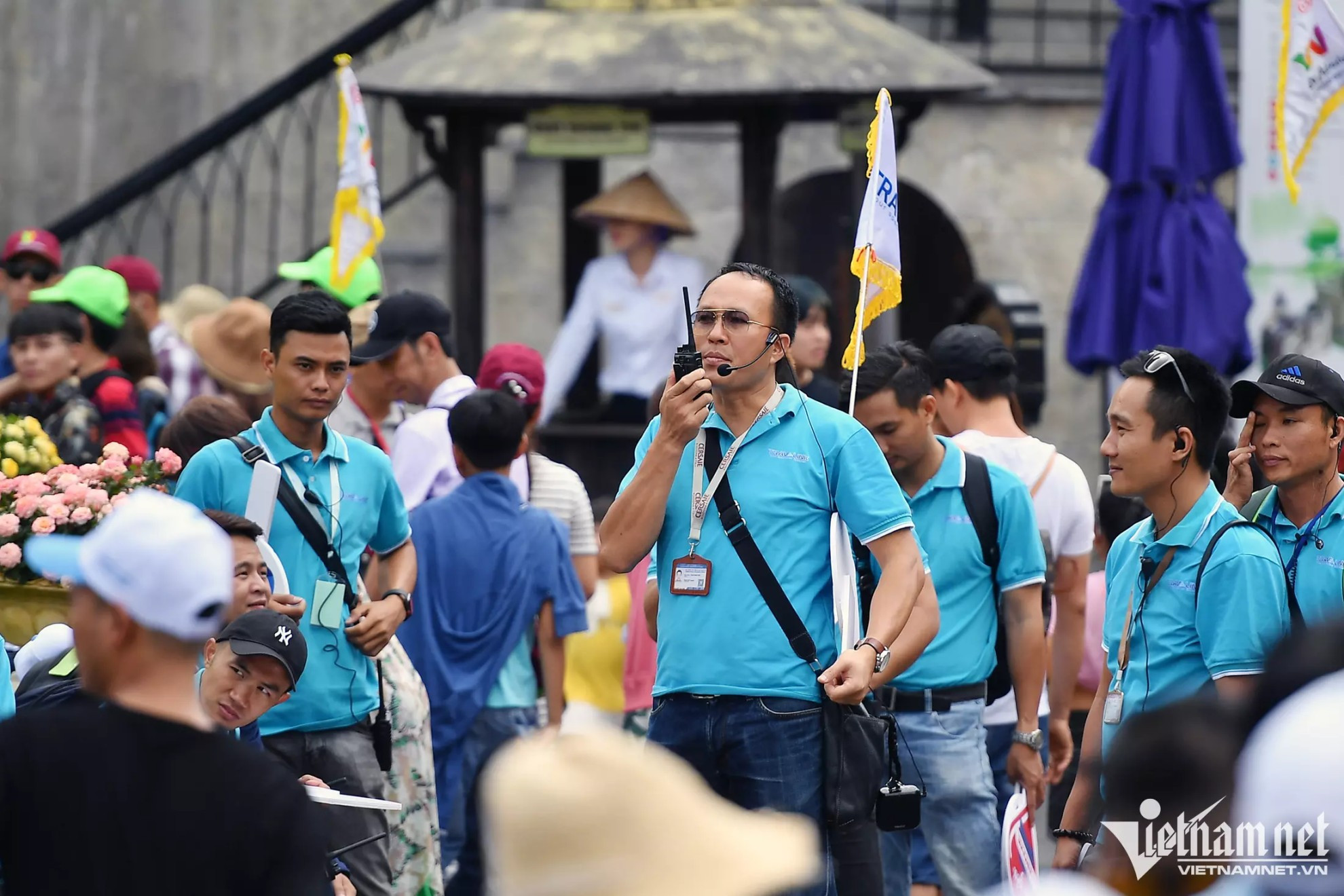
Seventy out of 200 workers at a large hotel in HCM City quit their jobs because of Covid-19. Some of them were key personnel. They could not wait for the recovery of tourism.
The hotel is state owned and the pay for workers is not competitive with foreign invested ones. Some of the workers left for rival hotels which offered them attractive wages.
This information was shared at a conference on Vietnam tourism held August 8. Labor shortages are causing a headache for most travel firms.
Cao Thi Tuyet Lan, CEO of Viettours, said the firm organized a tour for a group of 600 MICE tourists some days ago and booked rooms at a 5-star hotel in HCM City. But when the travelers came, they had to wait until 11 pm to receive rooms. There were many rooms, but not many chambermaids.
In fact, the need for workers in the tourism industry is not only occurring in Vietnam. A group of 300 travelers to the US in a tour provided by Viettour had to wait to get their rooms after 7pm.
Another problem, according to Lan, is the visa granting policy. In order to obtain a visa for foreign guests to come to Vietnam to attend workshops or meetings, it is necessary to register at the Immigration Department and then wait until the next Thursday to submit documents.
“This is just inviting foreigners to meetings. Tourism still has not fully opened. To open tourism, it’s necessary to implement bilateral diplomacy. We open our market to other countries and other countries open their markets to us,” Lan said.
According to the Vietnam National Administration of Tourism (VNAT), the number of foreign travelers to Vietnam remains modest. In the first seven months of the year, Vietnam received 733,000 travelers, or 15 percent of the plan to receive 5 million foreign travelers in 2022.
The figure is small compared with 2019, when Vietnam received 18 million foreign travelers and 85 million domestic travelers.
Chair of the Da Nang Tourism Association Cao Tri Dung said it is necessary to take action immediately to receive foreign travelers. In Da Nang, at this time in previous years, there were 10 flights to South Korea a day, but now there are only two.
He urged negotiation on market openings via diplomatic agencies, especially important markets for Vietnam such as China, South Korea, Japan and Taiwan.
Dung said that the Ministry of Culture, Sports and Tourism (MCST) needs to raise its voice to help remove the bottlenecks that hinder development of local tourism.
Travel firms, for example, cannot design special tourism products on Son Tra peninsula, though it is a wonderful attraction. The issue is government’s inspections and problems related to national defence facilities in the locality.
Tourism reopening
According to MCST Minister Nguyen Van Hung, domestic tourism has boomed recently, but development is not sustainable. If travel firms cannot do well, they will find it difficult to attract more domestic travelers. The bottleneck is that service quality is below tourists’ expectations. No one wants to pay money for low quality services, and no one likes to be overcharged.
Hung said it is necessary to see domestic tourism as a ‘pedestal’ for the tourism sector. He said it would be better not to count tourists, but calculate travelers’ spending.
Previously, one foreign traveler spent $1,500 on average when traveling to Thailand, but spent below $1,000 when traveling Vietnam.
At present, domestic travelers spend more than these amounts. State management agencies and the business community should pay higher attention to statistics about tourist spending to truly assess the role of domestic tourism.
Many travel firms put high expectations on foreign travelers rather than domestic ones. However, a high number of foreign tourists does not always mean high revenue. The capability of attracting foreign tourists depends on markets and countries’ tourism reopening policies.
When reopening, Vietnam needs to have good workers and services, and, if not, foreign travelers will not return.
Regarding the labor shortage, Hung advised travel firms to organize short-term training courses to have workers for the immediate time.
Regarding the renewal of tourism products to retain travelers, there should be cooperation between local authorities and businesses. Travel firms should not sit and wait but instead take action.
Tran Chung